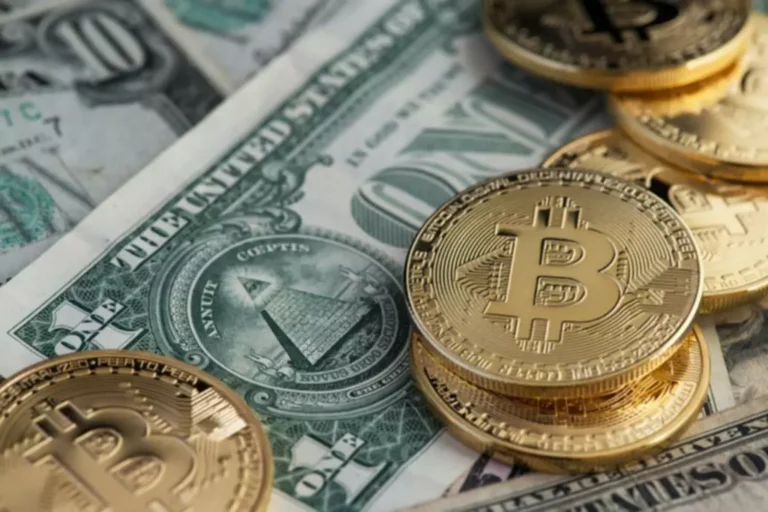Its main mission is to execute trades swiftly and effectively, making a stage taking half in field for market participants. The order matching system, also referred to as the trade matching system or simply the matching engine, is a digital platform that pairs buy and sell orders for securities in a good, environment friendly, and clear manner. It is the guts of any electronic trading platform, ensuring that each one trades are executed at the absolute best costs and in a well timed style. For instance, think about a situation the place a U.S.-based trader wants to execute a cross commerce involving securities listed in both the U.S. The trader should think about the time difference, currency trade rates, and the distinct regulatory necessities of every market.
Order Matching: The Art Of Order Matching In Cross Commerce Environments
The absence of a central server minimizes the chance of breaches, making them a safer alternative. DXmatch is Devexperts’ proprietary order matching engine designed for ultra-low latency and high throughput applications. It is trusted by regulated securities exchanges, darkish swimming pools, cryptocurrency exchanges, and OTC venues worldwide. Every time a trade is made, the steadiness order execution between the best available buy/sell prices and volumes thereof is altered as liquidity is eliminated, thus setting a new prevailing market worth. This is what market participants imply when they talk about value discovery.
- DXmatch offers high-quality APIs including the FIX 5.0 protocol that present market entry with sub-100 microseconds latency.
- This consists of using advanced encryption strategies, regular security audits, and real-time threat detection and mitigation strategies.
- Quantum computing, though nonetheless in its nascent stage, promises exponential will increase in computational energy.
- In a pro-rata algorithm, orders are first sorted by dimension, with the most important orders given priority.
- All working orders pertaining to a market participant could be canceled at once whereas stopping new ones.
From the technical standpoint, the necessity for sturdy and scalable methods that may handle high volumes of trades with velocity and accuracy is paramount. Regulatory challenges embody navigating via a maze of worldwide laws and rules that can differ considerably from one jurisdiction to a different. Operationally, guaranteeing seamless communication and coordination amongst varied market individuals is crucial for the smooth execution of cross trades. FIFO follows time precedence, i.e., it executes orders within the sequence in which they’re received.

An order matching system is a computerized network that matches buy orders with promote orders efficiently and at the finest possible prices. These methods are essential within the trendy buying and selling surroundings, permitting for high-frequency buying and selling and ensuring liquidity available within the market. They are used by stock exchanges, ECNs, darkish pools, and different buying and selling platforms to course of and match trades. It consists of a quantity of key components, including matching algorithms, information administration, and communication interfaces. Its core function is to match buy and promote orders from market individuals, execute trades, and generate transaction data.
Market Orders Vs Limit Orders
The correct functioning of all digital markets hinges on the availability of order matching algorithms that strike a balance between fairness, speed and effectivity. Matching orders rely on complicated algorithms that process enormous amounts of knowledge in real time. Buy and sell requests are sometimes sorted by worth and time precedence so as books, where orders usually are submitted. For occasion, a purchase order matches against the lowest existing promote order which satisfies the price of the client, and vice versa for sell orders. If there are extra orders obtainable at the identical worth the system matches them first come first serve, favoring orders positioned earlier.

DXmatch allows the execution of multi-leg buying and selling methods permitting users to create complicated methods inside the engine itself. This is among the most popular order matching rulesets by which orders are matched in accordance with their price and the time they had been positioned. Additionally generally known as FIFO (first in, first out), the oldest order at a specific price level shall be prioritized on this ruleset over newer orders at the same worth. We’ve already discussed the order e-book, which is considered one of the https://www.xcritical.com/ main components of an identical engine.
Choosing the best matching engine is a crucial decision for any buying and selling platform, immediately impacting its capability to function successfully and meet users’ demands. This selection entails several key considerations, every of which must be Proof of work carefully evaluated to make sure the engine helps the platform’s present needs and future growth and enlargement. Here, we delve deeper into the essential factors to consider when selecting an identical engine.
Members in a dark pool submit buy or promote orders for particular securities. These orders include information such as the desired amount, worth, and order kind (e.g., market order or restrict order). The orders are usually nameless, meaning the identities of the patrons and sellers usually are not disclosed. Aside from facilitating buying and selling, exchanges also provide extra companies. These could include listing and delisting securities, market data dissemination, commerce settlement, custody services, and regulatory oversight.
Expertise our top-rated foreign exchange dealer providers and trade over 300 devices across 5 markets, together with Forex, indices, stocks, commodities, and futures, all with low fees. Enhance your buying and selling skills with our complete academic resources and step-by-step guides. Ready to dive into the world of trading with a platform that values efficiency, transparency, and fairness? An order matching system refers to the electronic process of matching purchase & promote orders of a stock change or different similar financial exchanges. An order matching system is an electronic platform that mechanically pairs purchase and sell orders for securities based mostly on criteria like price and quantity. FIFO or the algorithm of strict precedence of value and time is the simplest and intuitively clear mechanism of allocation of trades.
Errors within the buying and selling platform’s code lead to unintended penalties similar to incorrect order placements or duplicate orders. Delays in data transmission, causing orders to be executed slower than meant. Both the client and the vendor obtain commerce confirmations after a commerce, which specify the trade terms and circumstances, together with settlement directions. If you’d like extra detailed data on how exchanges are created, you’ll be able to learn our case study in regards to the project where we’ve constructed and launched an change from scratch. Let us take a glance at some cases to understand the order execution process for the new submitted orders against the existing orders.
They cut back the time taken for order execution, allowing buyers to capitalize on market opportunities rapidly. It’s necessary to notice that whereas dark swimming pools present advantages such as decreased market influence and elevated execution flexibility, they also increase concerns about market transparency. The lack of pre-trade transparency in dark swimming pools signifies that the broader market could not have full visibility into buying and selling actions, probably impacting worth discovery and overall market effectivity. Regulatory our bodies carefully monitor dark swimming pools to make sure compliance with regulations and forestall any abusive or manipulative practices.
In the landscape of financial markets, the order matching system is a pivotal element that acts because the backbone for executing trades. These systems, typically known as Digital Communication Networks (ECNs) or Matching Engines, are liable for ensuring that buy and sell orders are paired at equitable prices. This doc goals to provide a complete overview of order matching techniques, their significance in algorithmic trading, and their operational mechanics. Order matching systems are used in numerous financial markets, including stock exchanges, futures exchanges, and foreign exchange markets. They are designed to deal with a high volume of orders and transactions, making them an essential device for contemporary, high-speed buying and selling operations. Order matching engines are the backbone of modern monetary markets, facilitating the seamless execution of trades.
At Present, most exchanges match orders utilizing laptop algorithms; however traditionally, brokers matched orders through face-to-face interactions on a buying and selling ground in an open-outcry public sale. Matching orders is the process by which a securities trade pairs a quantity of unsolicited buy orders to one or more sell orders to make trades. This can be contrasted with requests for a quote (RFQ) in a security to proceed with a trade. Regulators’ rules govern areas such as itemizing necessities, buying and selling procedures, disclosure obligations, and investor protection measures.
In the monetary world, an exchange refers to a marketplace where numerous financial devices, corresponding to stocks, bonds, commodities, derivatives, and currencies, are traded. It serves as a centralized platform that brings collectively patrons and sellers, facilitating the exchange of these financial belongings. Relying on the belongings it provides and its area of operation, an trade might must get licensed with a regulator. Truly, most exchanges are regulated except some of these offering crypto belongings. So, how are aggressive orders matched with the passive ones, which have been previously posted in the order book? For they had been accepted at different times from completely different commerce participants.
